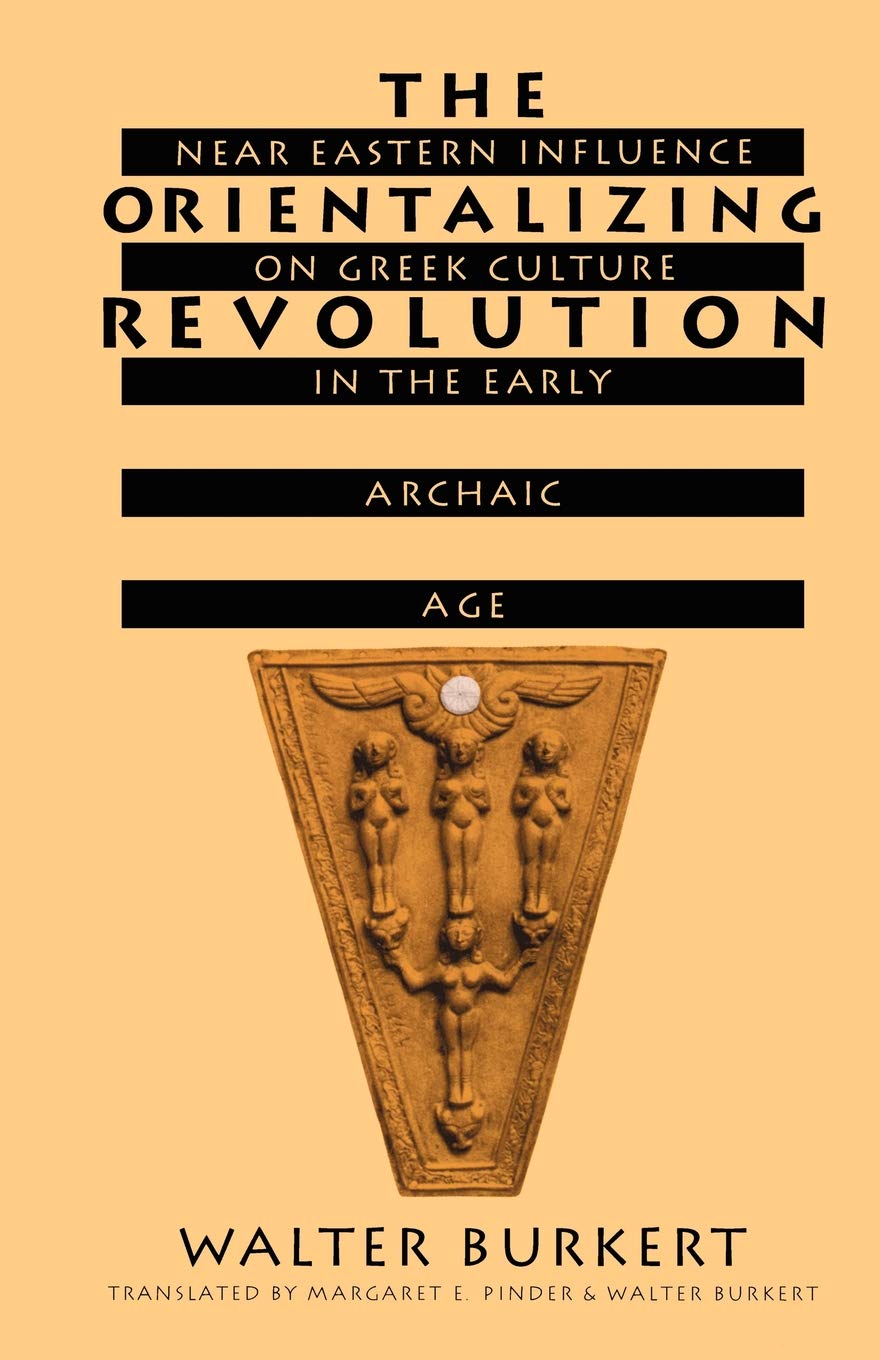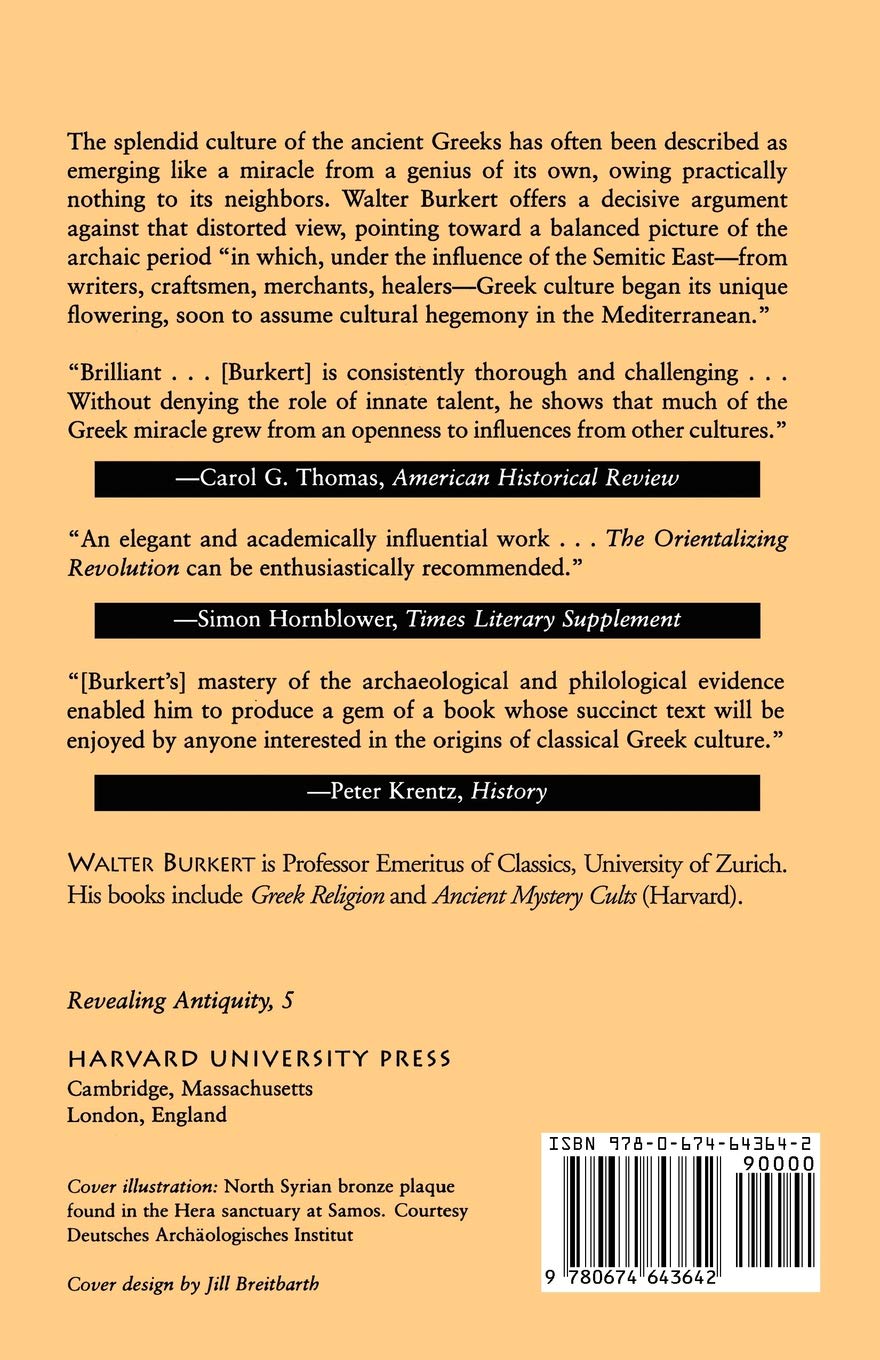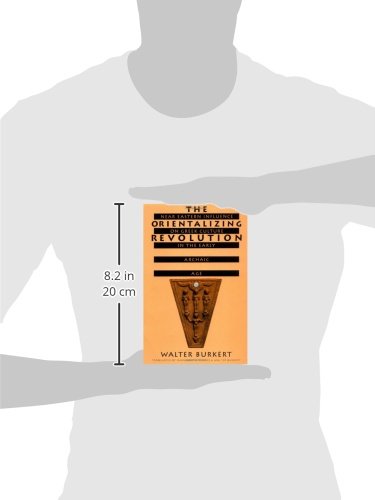Servicios al cliente
Sobre nosotros
Copyright © 2024 Desertcart Holdings Limited




Full description not available
D**R
The Ancient Greeks In Context
First, let's make clear what Burkert does NOT say. This book does not argue that the Greeks are an offshoot of some middle eastern civilization, or that Greek genius was merely a late and relocated flowering of Egyptian or some other oriental genius. Burkert in no way detracts from the greatness and the uniqueness of the Greeks.What he does is remove them from their isolation. He does this by showing a number of points where the Greeks, in the early Archaic Age, borrowed from the cultures around them or at least shared common beliefs or practices.The book is divided into three chapters, each organized around a class of people through whom East-West contacts occurred: craftsmen, seers / healers (workers in the sacred), and poets / singers. Burkert in each chapter reviews archaeological, literary and philological evidence for cultural contacts or "continuum". And the evidence is not overwhelming, but it is considerable.The achievement of _The Orientalizing Revolution_ is not to knock the Greeks off their pedestal. It is to help us better understand the Greeks, by seeing some aspects of their culture in a broader light and by teaching us to apply insights from other lands and peoples to the Greeks. This makes Burkert a worthy heir to Jane Ellen Harrison, for instance, and well worth reading.
B**R
Southwest Asian influence on early Greece
People like to call Greece the "cradle of Western civilization", but as this book shows, the Greeks themselves were substantially influenced by the civilizations of Southwest Asia (the "Middle East") in the areas of language, art, literature, and other aspects of their culture. This book doesn't make as radical an argument for Afro-Asiatic influence on Greece as did Martin Bernal's "Black Athena" (which claimed, among other things, that 25% of ancient Greek words were of Semitic origin), but it is nonetheless a useful resource in challenging Eurocentrism.I can only name two flaws with the book, neither of them serious. First, its tone is rather academic and dry. Secondly, it concentrates on Greece's archaic period. I would have like to see some discussion on how much influence, if any, Southwest Asia had on Greece in later periods (e.g. Classical or Hellenistic).Those minor caveats aside, I highly recommend this book for those interested in non-Eurocentric history.
A**R
Buy this book
As always Burkert is timeless in his theories.
T**N
Five Stars
Fantastic introduction into the assyrian/babylonian origin of Greece.
N**I
Five Stars
Highly recommended.
B**R
A wonderful piece of scholarship
A wonderful piece of scholarship. He links important Greek material and the Epic of Gilgamesh. This in turn is linked to Winter's work with parallel material in India. Death: A Hero's Fate goes in more depth with some of the parallels.
G**N
Dry as a Bone
In this short volume, Walter Burkert sifts through literary and linguistic evidence with a fine-tooth comb, searching for Mesopotamian, Anatolian and Levantine influences on Archaic Greek culture, especially the writings of Hesiod and Homer.The books central position, that pre-Classical Greece was strongly influenced by Mesopotamia and Egypt, has been widely held for several decades, though it may come as a surprise to non-specialists.Burkert introduces the book with a historical account of the migrant culture of soothsayers, skilled craftsmen and poets from the Near East who traveled the Mediterranean. He then puts numerous cases of arts of letters under his microscope, establishing modest but persuasive parallels between motifs. Gilgamesh and Enuma Elish receive extensive comparison with the Iliad and Odyssey, and he makes many other salient comparisons besides.In his conclusion, he refers to the preceding matter as "a long and often torturous investigation," and he is not wrong. I was disappointed but not surprised that he wrote this book in his usual tone-deaf style, giving the impression of an active hostility toward elegance or beauty, as though such qualities would spoil the science of the enterprise.I was frequently genuinely baffled by the great effort he expended to analyze incidental tropes or symbols, while ignoring some of the most persuasive and well-established evidence. The obvious Mesopotamian influence on figure sculpture receives scarcely a single notice (!), nor does the clear similarities evidenced by Enuma Elish and Hesiod's Theogony. He passes the myths and icons of Heracles by in silence; material of which he himself observed "Oriental motifs have obviously entered this complex," in his Greek Religion.The book was at times illuminating but was studiously unconcerned with making a larger point about the significance of historical interplay between Greece and the Near East. Burkert's intellect is ever alive to minutiae, but his heart seems strangely dead in the face of splendid images of great vitality and significance. I can't comprehend how one could apply one's intellect so coldly to this splendid body of material, or why one would want to.
Trustpilot
Hace 1 día
Hace 2 semanas